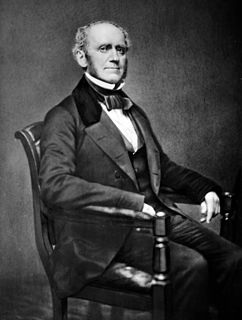A Quote by Fitz-Greene Halleck
Related Quotes
There is nothing you can do except try to write it the way that it was. So you must write each day better than you possibly can and use the sorrow that you have now to make you know how the early sorrow came. And you must always remember the things you believed because if you know them they will be there in the writing and you won’t betray them. The writing is the only progress you make.
I have a 10 year old at home, and she is always saying, 'That's not fair.' When she says that, I say, "Honey, you're cute; that's not fair. Your family is pretty well off; that's not fair. You were born in America; that's not fair. Honey, you had better pray to God that things don't start getting fair for you.
If gay marriage is a real thing, gay infertility must be a real thing. It's not fair. I mean, it wasn't fair they couldn't get married, and now it's not fair that they can't have babies, even though they're not infertile, that doesn't matter. And so there must be access to infertility insurance for married gay couples, if our culture and if our society is to be fair and equal for one and all, and it is coming, and don't laugh about it.
Behind joy and laughter there may be a temperament, coarse, hard and callous. But behind sorrow there is always sorrow. Pain, unlike pleasure, wears no mask. ... For this reason there is no truth comparable to sorrow. There are times when sorrow seems to me to be the only truth. Other things may be illusions of the eye or the appetite, made to blind the one and cloy the other, but out of sorrow have the worlds been built, and at the birth of a child or a star there is pain.
One third, more or less, of all the sorrow that the person I think I am must endure is unavoidable. It is the sorrow inherent in the human condition, the price we must pay for being sentient and self-conscious organisms, aspirants to liberation, but subject to the laws of nature and under orders to keep on marching, through irreversible time, through a world wholly indifferent to our well-being, toward decrepitude and the certainty of death. The remaining two thirds of all sorrow is homemade and, so far as the universe is concerned, unnecessary.
I believe that it may happen that one will succeed, and one must not begin to despair, even though defeated here and there; and even though one sometimes feels a kind of decay, though things go differently from the expected, it is necessary to take heart again and new courage. For the great things are not done by impulse, but by a series of small things brought together. And great things are not something accidental, but must certainly be willed. What is drawing? How does one learn it? It is working through an invisible iron wall that seems to stand between what one feels and what one can do.
Recently, one friend asked me, "How can I force myself to smile when I am filled with sorrow? It isn't natural." I told her she must be able to smile to her sorrow, because we are more than our sorrow. A human being is like a television set with millions of channels. If we turn the Buddha on, we are the Buddha. If we turn sorrow on then we are sorrow. If we turn a smile on, we really are the smile. We can not let just one channel dominate us. We have the seed of everything in us, and we have to seize the situation in our hand, to recover our own sovereignty.
The difference between shallow happiness and a deep, sustaining joy is sorrow. Happiness lives where sorrow is not. When sorrow arrives, happiness dies. It can't stand pain. Joy, on the other hand, rises from sorrow and therefore can withstand all grief. Joy, by the grace of God, is the transfiguration of suffering into endurance, and of endurance into character, and of character into hope--and the hope that has become our joy does not (as happiness must for those who depend up on it) disappoint us.




































